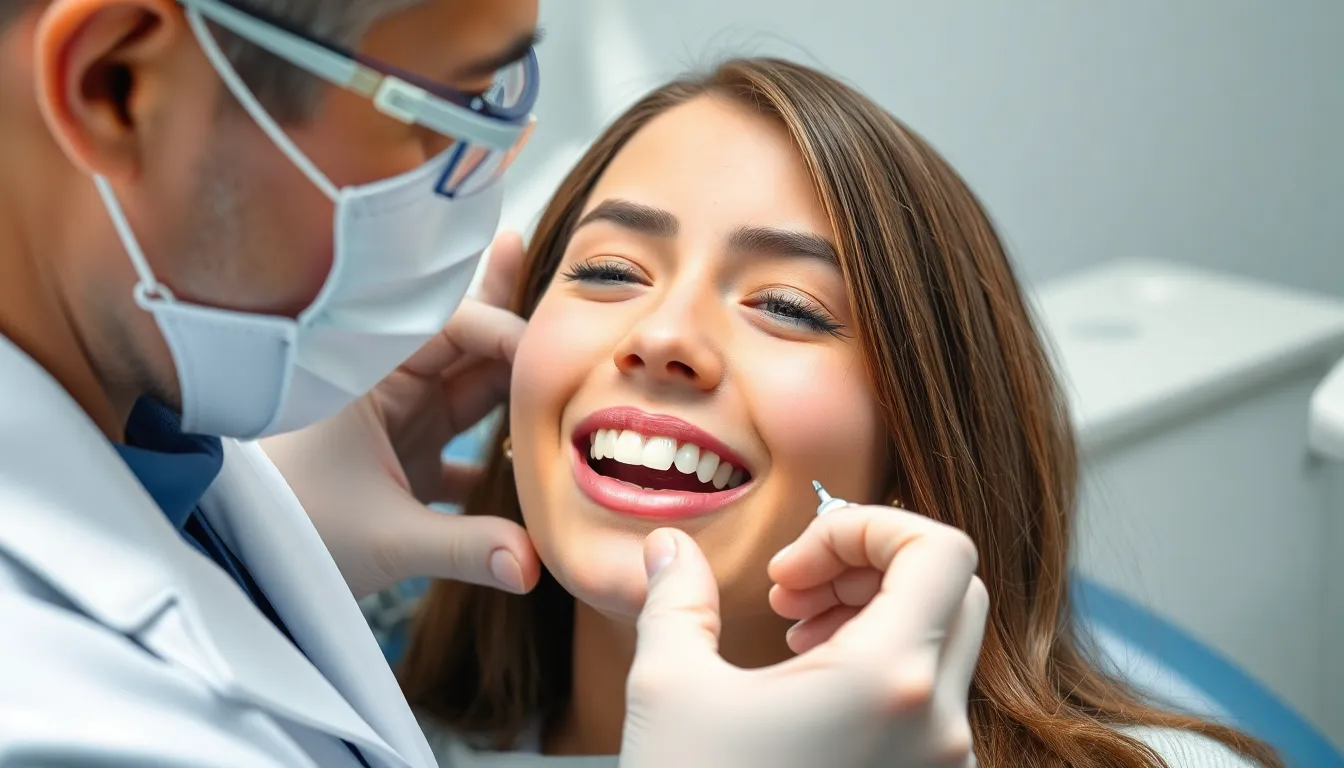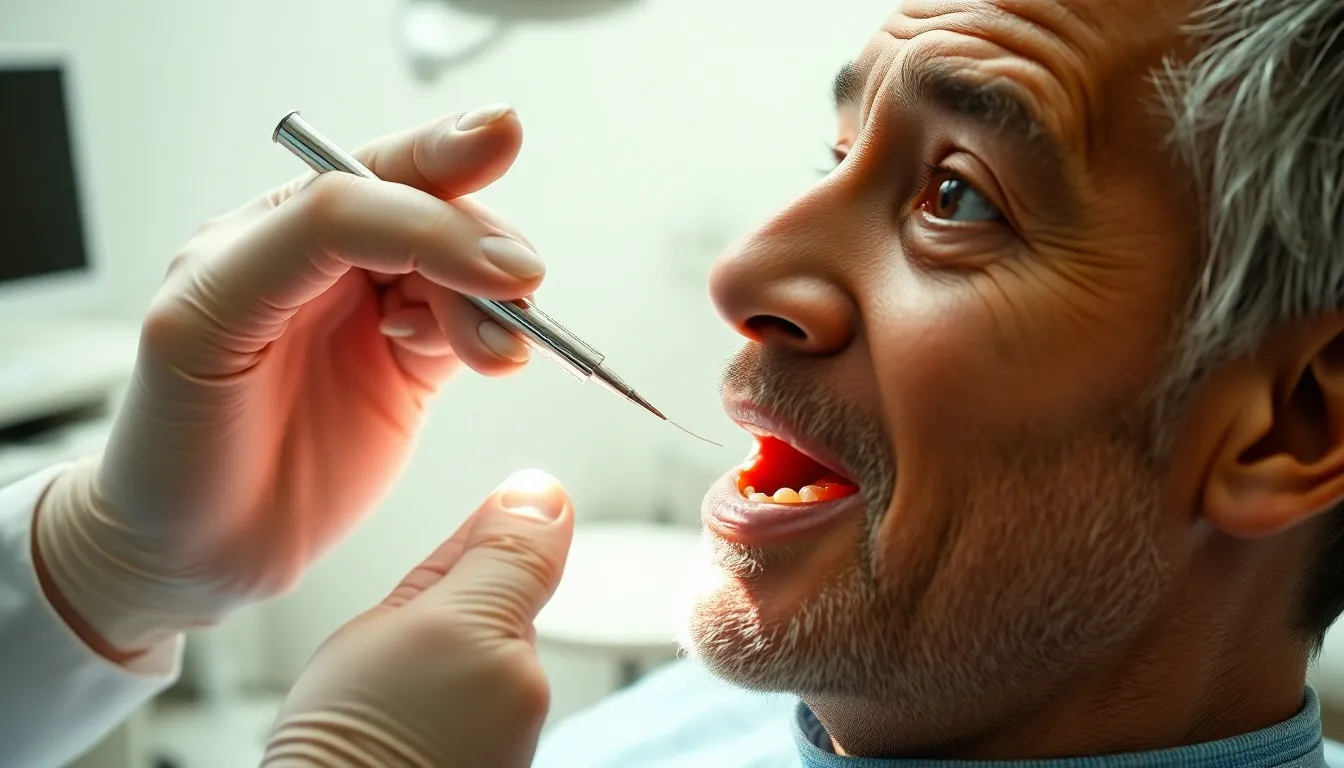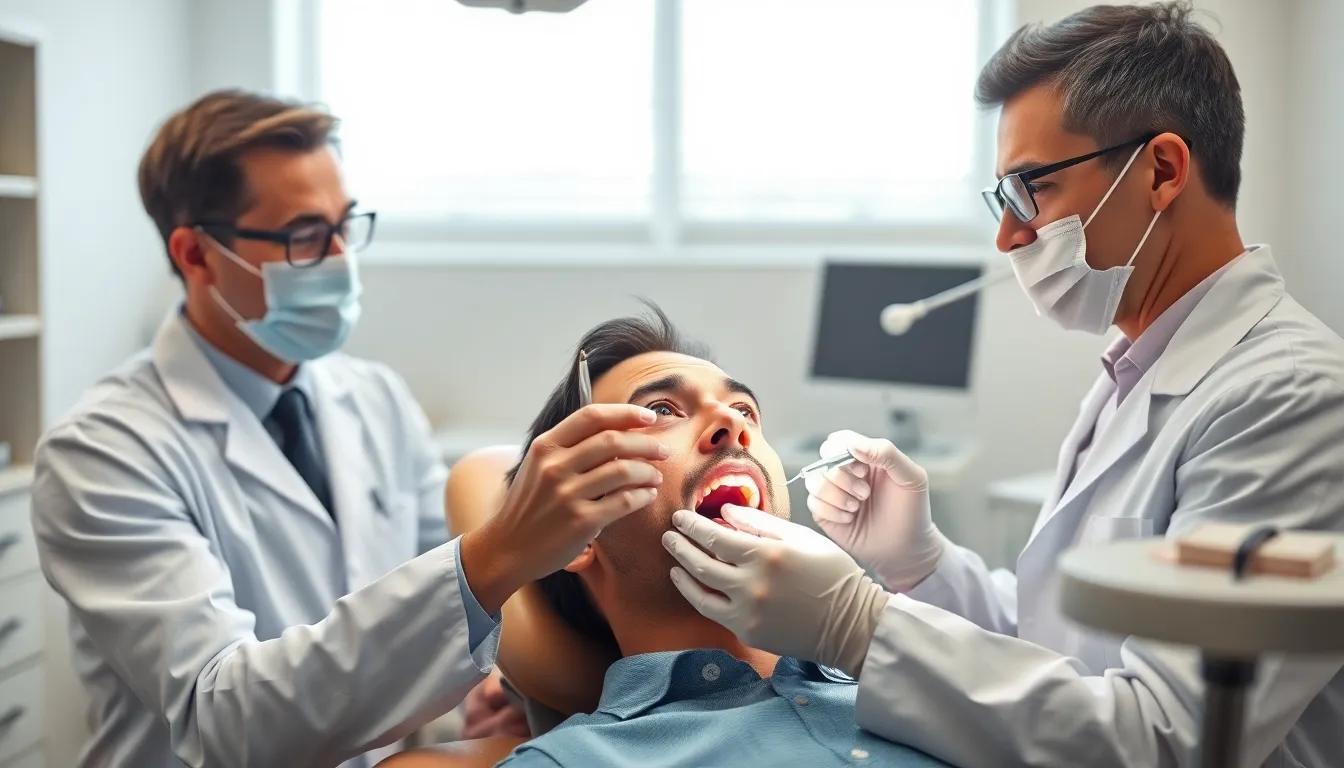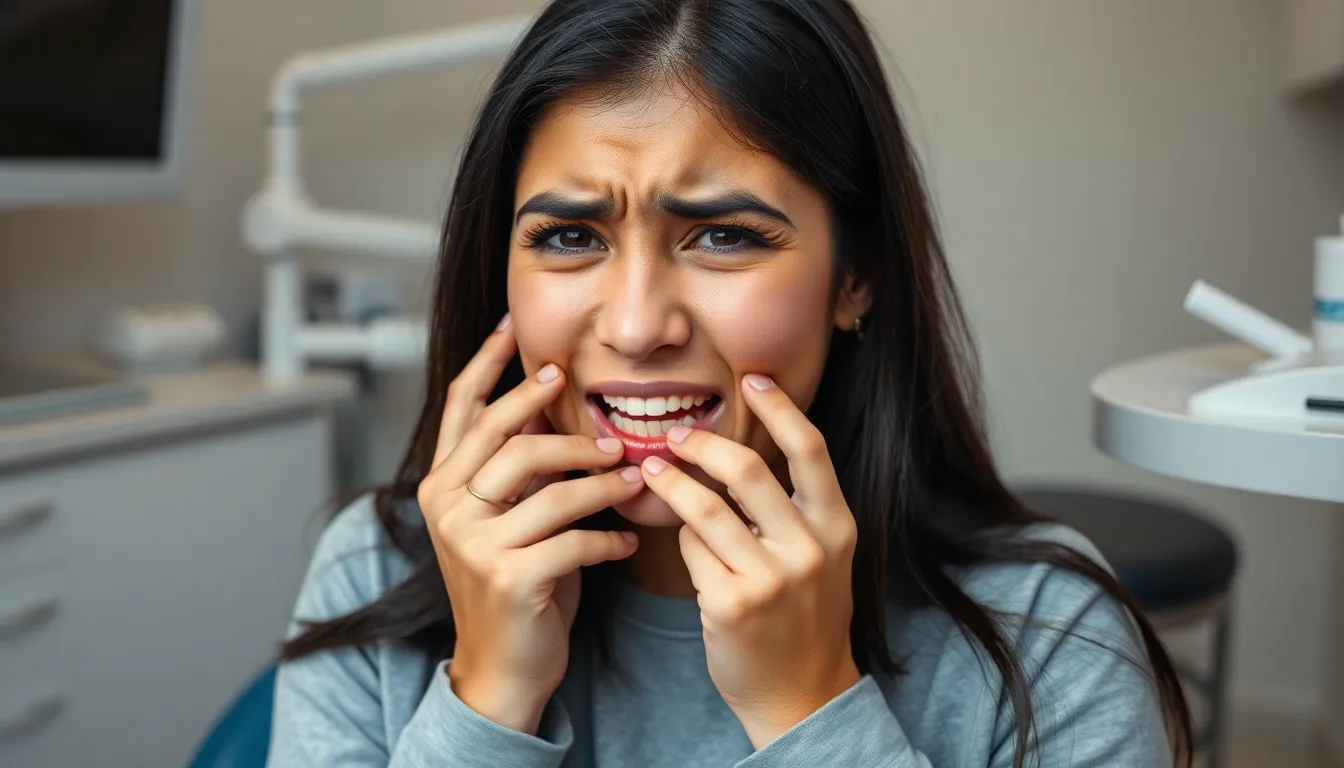Do you hate the dentist with a burning passion? You’re definitely not alone. That feeling of dread before appointments affects millions of people worldwide, ranging from mild nervousness to full-blown dental phobia.
Whether it’s the sound of drills, fear of pain, or uncomfortable memories from childhood visits, dental anxiety is incredibly common. The good news? There are effective strategies to make your dental visits less stressful. Understanding why you hate the dentist is the first step toward overcoming these feelings and maintaining your oral health without the emotional turmoil.
Why So Many People Fear Going to the Dentist
Dental anxiety affects approximately 36% of the population, with 12% suffering from extreme dental fear that qualifies as a phobia. The origins of this widespread fear stem from several identifiable sources that create emotional barriers between patients and necessary dental care.
Past Traumatic Experiences
Negative dental experiences, especially during childhood, often create lasting impressions that fuel dental anxiety. A single painful procedure without adequate pain management can establish a lifelong association between dentists and discomfort. These memories become particularly powerful when they occur during formative years when pain processing and emotional regulation aren’t fully developed.
“I remember treating a patient who avoided dental care for 15 years after a painful extraction as a teenager,” Dr. Todd B. Harris recalls. “Her fear was so intense that she’d rather endure toothaches than schedule an appointment. We gradually rebuilt her trust with shorter, comfort-focused visits.”
Fear of Pain and Discomfort
The anticipation of pain ranks as the primary reason many people avoid dental visits. This fear intensifies for those who’ve experienced inadequate anesthesia or procedures where discomfort couldn’t be fully managed. The mouth contains highly sensitive nerve endings, making dental work potentially more uncomfortable than procedures in other body areas.
Loss of Control
Dental procedures place patients in a vulnerable position—reclined, mouth open, with limited ability to communicate. This powerlessness triggers anxiety for many individuals who value autonomy and control. The inability to see what’s happening inside one’s mouth amplifies feelings of helplessness and uncertainty about the ongoing procedure.
Embarrassment About Oral Health
Many patients avoid dental visits due to shame about their current oral health status. Years of neglected dental care often lead to visible problems like decay, missing teeth, or gum disease. The fear of judgment from dental professionals creates a cycle where embarrassment prevents seeking care, which further worsens the condition and increases embarrassment.
Sensory Triggers
The distinctive sensory elements of dental offices trigger anxiety in many patients. The high-pitched whine of dental drills, the distinctive smell of dental materials, and the clinical environment combine to create a stress-inducing atmosphere. These sensory experiences activate the body’s fight-or-flight response, causing physical symptoms like increased heart rate, sweating, and tension.
Common Reasons Behind Dental Anxiety

Dental anxiety manifests from several identifiable sources that affect millions of patients worldwide. Understanding these triggers helps both patients and dental professionals address fears more effectively.
Painful Past Experiences
Traumatic dental visits create powerful, lasting impressions that contribute significantly to ongoing dental anxiety. About 60% of individuals with dental fear point to a exact negative experience as the source of their anxiety. These encounters often establish a harmful cycle where you avoid appointments due to fear, resulting in more serious dental problems that eventually require more invasive treatments. Many patients report that childhood dental experiences particularly shape their adult attitudes toward dental care. Dr. Todd B. Harris notes, “I’ve had patients who avoided dental care for 15+ years because of a single painful experience they had as teenagers—the psychological impact of these experiences can’t be overstated.”
Fear of Needles and Procedures
The sight of dental instruments often triggers immediate anxiety reactions in many patients. Beyond just needle phobia, the entire sensory experience—from the sound of the drill to the feeling of water spray—can create overwhelming distress. This fear typically intensifies for procedures requiring anesthesia or involving more invasive techniques. Research shows this fear often connects to anticipatory anxiety, where you imagine pain before it occurs. One patient shared, “I start sweating and my heart races just seeing the tray of instruments, even though my dentist hasn’t touched them yet—it’s an automatic response I can’t control.”
Loss of Control in the Dental Chair
Feeling helpless while reclined in the dental chair ranks as a primary anxiety trigger for many patients. The vulnerable position—mouth open, unable to see what’s happening, and difficulty communicating—creates important psychological distress. This sensation of powerlessness particularly affects patients with underlying anxiety disorders or past traumatic experiences. The combination of physical restriction and inability to respond verbally heightens feelings of vulnerability. Dental environments where patients receive clear explanations and opportunities for input during procedures typically report lower anxiety levels among their patients.
Physical and Psychological Symptoms of Dental Phobia

Dental phobia manifests through distinct physical reactions that signal your body’s fight-or-flight response when faced with dental situations. Your heart rate typically increases, often accompanied by excessive sweating and visible trembling. Many patients report feeling nauseated or experiencing stomach discomfort before appointments. Tense muscles throughout your body, particularly in the neck and shoulders, frequently indicate heightened anxiety. Breathing difficulties, including shortness of breath or hyperventilation, can occur during dental visits. Scientists have measured elevated cortisol levels in dentally anxious patients, confirming the physiological stress response triggered by dental environments.
Dr. Todd B. Harris recalls a patient who exemplified these symptoms: “One of my patients, Sarah, would begin shaking uncontrollably in the waiting room. Her pulse would race so dramatically that we often had to take breaks during routine cleanings just so she could regulate her breathing. Understanding these physical manifestations helped us develop a treatment approach that addressed her anxiety first, before attempting any dental work.”
Your psychological response to dental situations can be equally intense when experiencing dental phobia. Overwhelming fear or dread often begins days before scheduled appointments, building as the date approaches. Panic attacks frequently occur either in anticipation of or during treatment, characterized by racing thoughts and feelings of impending doom. Avoidance behaviors manifest as repeatedly canceling or postponing necessary dental care—36% of dental phobia sufferers avoid dentists entirely until pain becomes unbearable. Feelings of helplessness or loss of control dominate your thoughts while in the dental chair. Catastrophic thinking patterns emerge, such as assuming a routine cleaning will be excruciating or that complications will inevitably arise. Research shows dental phobia commonly coexists with broader anxiety disorders like generalized anxiety, PTSD, or claustrophobia, which can intensify the dental-exact fear.
Understanding these symptoms represents the first step toward addressing dental anxiety. Your physical and psychological responses aren’t merely “overreactions”—they’re legitimate manifestations of fear that deserve acknowledgment and proper management techniques.
How Avoiding the Dentist Affects Your Health
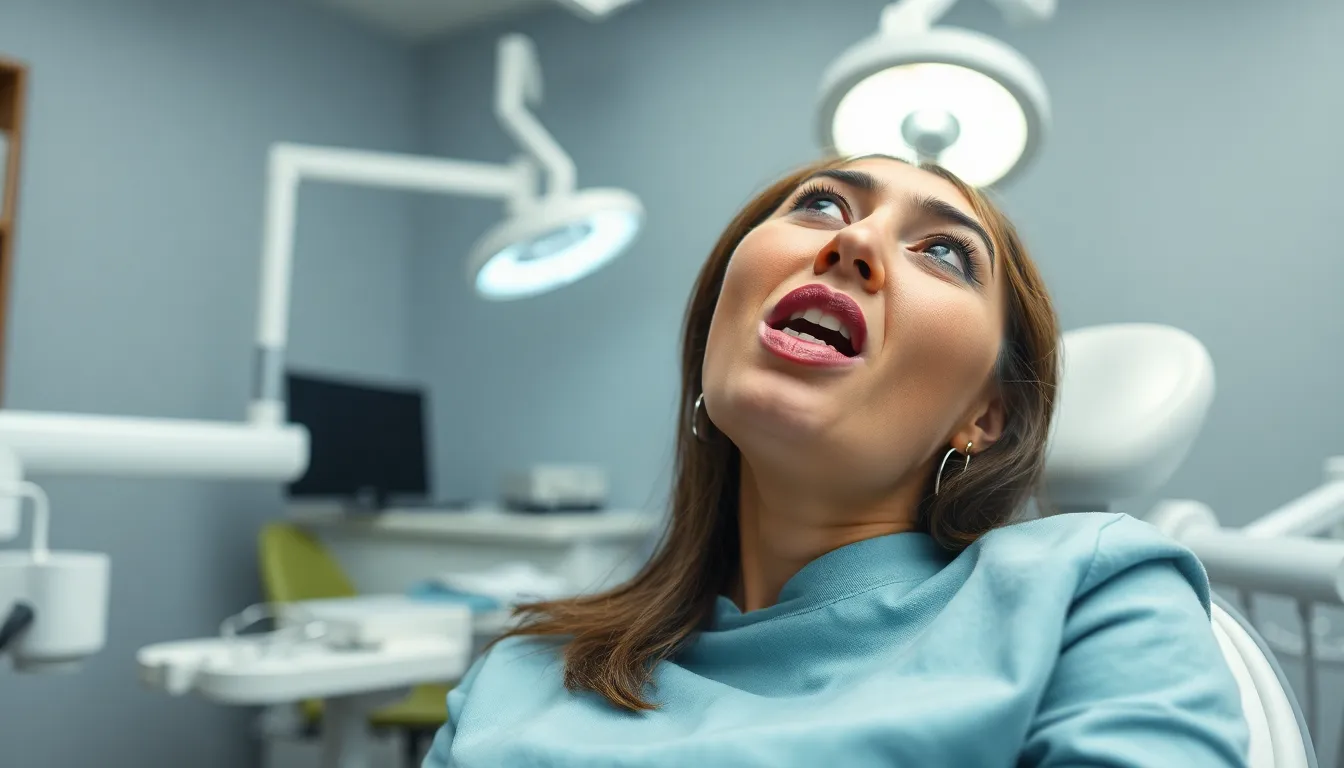
Skipping dental appointments might seem like a relief when you’re anxious, but it creates important consequences for both your oral and overall health. Regular dental care prevents minor issues from developing into major problems that affect your quality of life.
Short-Term Consequences
Cavities develop quickly when you avoid professional dental care, as plaque builds up even though home brushing efforts. Untreated decay leads to pulsing, aching tooth pain that can disrupt sleep and daily activities. Gum disease begins silently with inflammation and bleeding during brushing, potentially progressing to painful periodontal disease where teeth loosen and may eventually fall out. Bad breath becomes persistent as bacteria multiply in your mouth, affecting your confidence in social and professional situations. Tooth enamel wears down without proper care, creating sensitivity to hot, cold, and sweet foods that makes eating uncomfortable.
“I had a patient who avoided dental visits for three years due to anxiety,” shares Dr. Todd B. Harris. “When she finally came in with unbearable pain, what could have been a simple filling had become so severe it required a root canal and crown—a procedure that was more invasive, painful, and expensive than what she had been avoiding.”
Long-Term Oral Health Problems
Tooth loss becomes almost inevitable when dental problems remain untreated for years. Missing teeth create a cascade of additional issues, including shifting of remaining teeth, difficulty eating nutritious foods, and bone loss in the jaw. Dental treatments become exponentially more complex and costly over time—what starts as a $150 filling can progress to a $1,200 root canal or $3,000+ dental implant.
The compounding nature of dental problems means that avoiding care now virtually guarantees more painful, invasive procedures later. Oral infections don’t stay contained in your mouth—they can enter your bloodstream and impact your cardiovascular system, potentially contributing to heart disease. Diabetes management becomes more difficult with poor oral health, creating a dangerous cycle as elevated blood sugar levels further worsen gum disease. Respiratory infections occur more frequently in people with poor oral hygiene as bacteria from the mouth can be aspirated into the lungs.
Recent research has even identified concerning links between chronic gum inflammation and brain health, suggesting potential connections to cognitive conditions. Your overall health is intimately connected to your oral health, making regular dental visits an essential component of preventive healthcare rather than just a cosmetic concern.
Modern Dentistry: It’s Not What It Used to Be

Modern dentistry in 2025 bears little resemblance to the anxiety-inducing experiences of the past. Technological innovations and improved techniques have transformed dental visits into more comfortable, efficient, and accessible experiences for patients who previously claimed “I hate the dentist.”
Pain Management Advancements
Pain control has evolved dramatically in modern dental practices. Today’s dentists employ sophisticated pain management protocols that minimize discomfort throughout every procedure. Advanced sedation techniques now come in various forms customized specifically for anxious patients, ranging from mild relaxation to deeper sedation levels. These improvements provide both calming effects and effective pain relief during treatments. Many of Dr. Todd B. Harris’s patients express surprise at how comfortable their appointments have become compared to their previous experiences elsewhere. “One patient told me she’d avoided dental care for 15 years due to a traumatic childhood experience,” Dr. Harris shares. “After experiencing our modern pain management approach, she now keeps regular appointments without anxiety medication.”
Sedation Options for Anxious Patients
Dental anxiety sufferers now have multiple sedation options to choose from based on their comfort needs and procedure complexity. Nitrous oxide (laughing gas) offers mild relaxation while allowing patients to remain fully conscious and responsive during treatment. Oral sedatives provide deeper relaxation for more anxious individuals or complex procedures. IV sedation enables patients to essentially sleep through their dental work, making it ideal for those with severe dental phobia. These options have revolutionized care for the 36% of the population affected by dental anxiety, particularly the 12% with extreme dental fear. Technology complements these sedation techniques with AI-powered diagnostics, digital treatment planning, and minimally invasive methods like laser dentistry and micro-dentistry using ultra-small instruments. These approaches preserve natural tooth structure while reducing both pain and recovery time significantly compared to traditional methods.
Finding a Dentist Who Understands Dental Anxiety
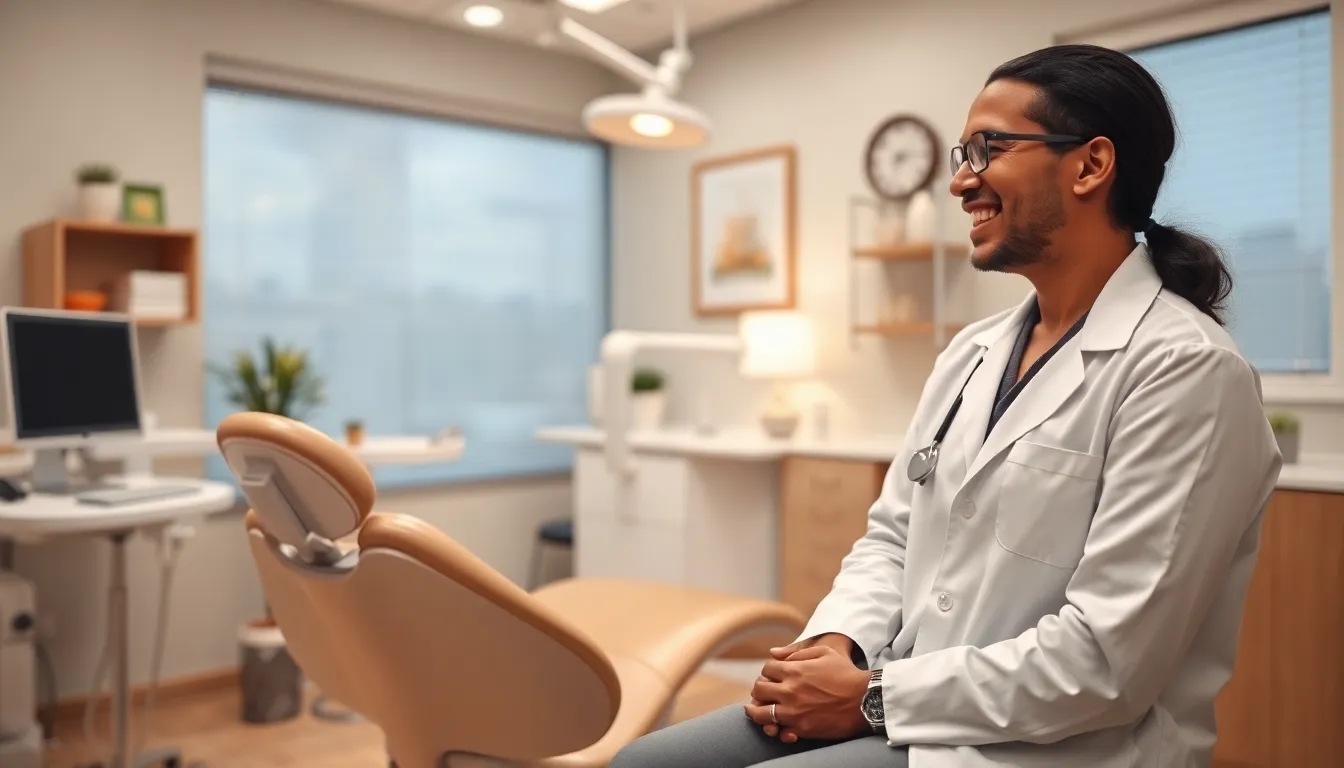
Selecting a dentist who specializes in treating anxious patients makes a profound difference in your dental experience. ProSmile Family Dental in Modesto exemplifies practices that prioritize personalized care for patients with dental anxiety, creating supportive environments that acknowledge your unique concerns. Dentists who understand dental anxiety typically offer several distinguishing features in their practice approach.
Key Qualities to Look For
Communication skills stand at the forefront of anxiety-sensitive dental care. Empathetic dentists take time to explain procedures thoroughly, answering all your questions without rushing through consultations. Patient-centered practices encourage you to express concerns openly and establish clear stop signals during treatment, giving you a sense of control throughout your visit. Offices with calming environments featuring relaxing music, comfortable seating, and welcoming décor help ease your nerves before treatment even begins.
Questions to Ask Potential Dentists
Before scheduling an appointment, call the dental office and inquire about their approach to anxious patients. Ask specifically:
- “What techniques do you use to help patients with dental anxiety?”
- “Can I schedule a meet-and-greet visit before my actual appointment?”
- “Do you offer sedation options for anxious patients?”
- “How much time do you typically allocate for explaining procedures?”
- “What’s your approach if a patient needs a break during treatment?”
Sedation Options for Severe Anxiety
Many dentists now offer various sedation methods customized to different anxiety levels. Nitrous oxide provides mild relaxation while maintaining consciousness, making it perfect for patients with moderate anxiety. Oral sedatives taken before appointments deliver deeper relaxation for those with more important fear. IV sedation, administered by specially trained dentists, creates a semi-conscious state where you’ll have little memory of the procedure, ideal for patients with severe dental phobia or those undergoing complex treatments.
Dr. Todd B. Harris notes, “I’ve seen patients who avoided dental care for decades transform into regular visitors after finding a dentist who truly understood their anxiety. One patient told me she cried after her first appointment because it was nothing like the traumatic experiences she’d had before. Finding the right dentist isn’t just about technical skill—it’s about finding someone who makes you feel safe.”
Reading Patient Testimonials
Patient reviews offer valuable insights into how a dental practice handles anxiety. Look for exact mentions of how the dentist managed fearful patients rather than general satisfaction ratings. Testimonials that describe detailed accommodations for anxiety, such as extra time taken for explanations or special comfort measures, indicate a practice genuinely committed to addressing dental fear.
Practical Strategies to Overcome Your Dental Fears
Dental anxiety doesn’t have to control your oral health journey. Effective techniques exist to transform dental visits from fear-inducing experiences into manageable healthcare appointments.
Communication Techniques
Open dialogue with your dentist creates a foundation for anxiety management. Tell your dental provider specifically about your fears, triggers, and past negative experiences so they can customize your treatment approach. Establishing a signal system (like raising your hand) gives you control to pause treatment whenever you feel overwhelmed. Many dental practices now design personalized care plans for anxious patients that include extra appointment time and frequent breaks. Dental offices increasingly create calming environments with soft music, warm lighting, and visual distractions like artwork or reading materials to reduce patient nervousness. Patients who communicate their concerns report significantly improved dental experiences, as one survey found that 75% of anxious patients felt more comfortable after discussing their fears with their dentist.
Relaxation Methods for Dental Visits
Deep breathing exercises effectively reduce dental anxiety by activating your body’s relaxation response. Practice inhaling slowly through your nose for a count of four, holding briefly, then exhaling through your mouth for a count of six before and during your appointment. Progressive muscle relaxation techniques help release physical tension by systematically tightening and relaxing different muscle groups throughout your body. Guided imagery transports your mind away from the dental chair—many patients visualize peaceful settings like beaches or forests during procedures. Distraction strategies such as listening to your favorite music or podcasts through headphones can significantly reduce anxiety by shifting your focus away from dental sounds. Bringing comfort items like a weighted blanket or stress ball provides additional physical reassurance during treatment. For severe anxiety cases, professional interventions including Cognitive Behavioral Therapy have proven highly effective, with studies showing CBT as the most successful psychological treatment for dental phobia.
Conclusion
Dental anxiety doesn’t have to keep you from maintaining healthy teeth and gums. Modern dentistry has evolved dramatically with advanced pain management protocols and patient-centered approaches specifically designed for fearful patients.
You’re not alone in your dental fears – millions share this experience. By finding a compassionate dentist who prioritizes your comfort and implementing effective coping strategies you can transform your dental visits from dreaded ordeals to manageable healthcare routines.
Remember that avoiding the dentist only leads to more important problems requiring more intensive treatment. Taking small steps toward overcoming your dental anxiety today will benefit your oral health and overall wellbeing for years to come. Your smile is worth it.
Frequently Asked Questions
What percentage of people suffer from dental anxiety?
Approximately 36% of the population experiences dental anxiety, with about 12% suffering from extreme dental fear that qualifies as a phobia. This widespread issue prevents many people from seeking regular dental care, leading to worse oral health outcomes over time.
What are the main triggers for dental anxiety?
Common triggers include the sounds of dental equipment, painful past experiences, and the anticipation of pain. Other factors include feelings of loss of control during procedures, embarrassment about oral health condition, and various sensory triggers in the dental environment such as smells and bright lights.
How do traumatic dental experiences affect future dental visits?
About 60% of individuals with dental anxiety cite a negative experience as the source of their fear. These traumatic experiences, especially those from childhood, create lasting impressions that fuel ongoing anxiety and often lead to a harmful cycle of avoidance and worsening dental issues.
What physical symptoms might someone with dental phobia experience?
Dental phobia triggers a fight-or-flight response characterized by increased heart rate, excessive sweating, trembling, nausea, and muscle tension. Patients may also experience breathing difficulties and elevated cortisol levels due to stress, making dental visits physically uncomfortable beyond the procedure itself.
What are the health consequences of avoiding dental care due to anxiety?
Short-term effects include rapid development of cavities, gum disease, and persistent bad breath. Long-term consequences are more severe: inevitable tooth loss, complex and costly dental treatments, and potential systemic health issues including cardiovascular problems and diabetes complications. Regular dental care is essential for overall health.
How has modern dentistry improved the experience for anxious patients?
Modern dentistry offers sophisticated pain control protocols and various sedation options like nitrous oxide, oral sedatives, and IV sedation. AI-powered diagnostics and minimally invasive techniques have reduced discomfort and recovery time. These advancements make dental care more accessible and less intimidating for anxious patients.
What should I look for when finding a dentist who understands dental anxiety?
Look for a dentist with strong communication skills, a patient-centered approach, and a calming office environment. Ask specific questions about their techniques for managing anxiety and available sedation options. Consider patient testimonials to gauge how well the practice accommodates anxious patients.
What strategies can help overcome dental fears?
Effective strategies include open communication with your dentist, relaxation techniques (deep breathing, progressive muscle relaxation, guided imagery), and distraction methods like listening to music during appointments. For severe anxiety, professional interventions such as Cognitive Behavioral Therapy may be beneficial.


